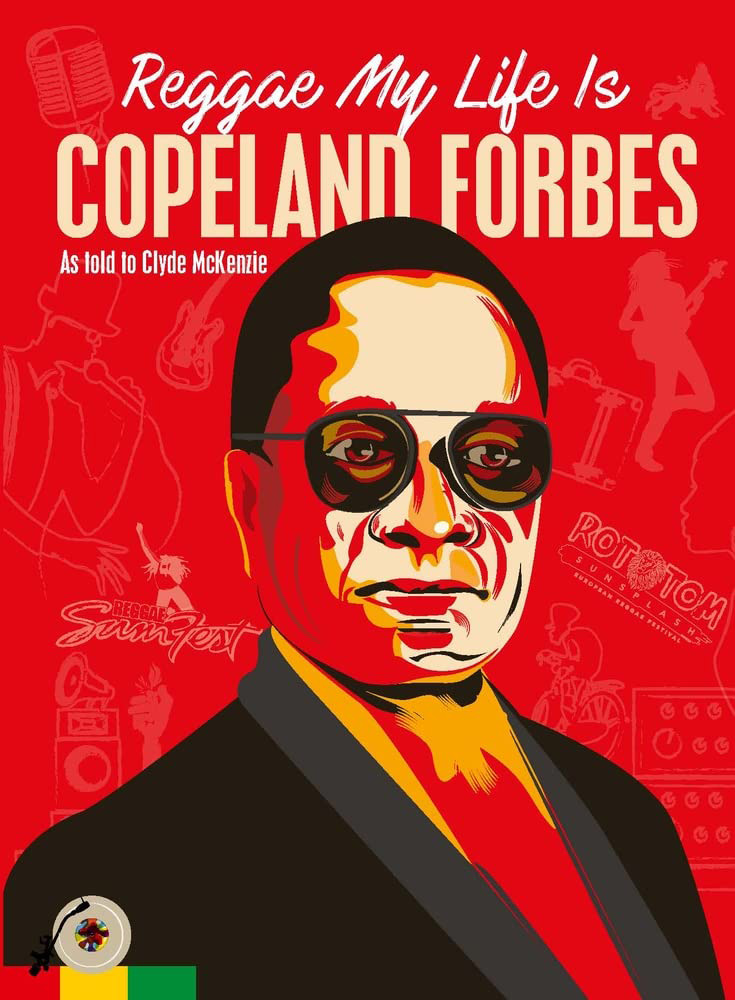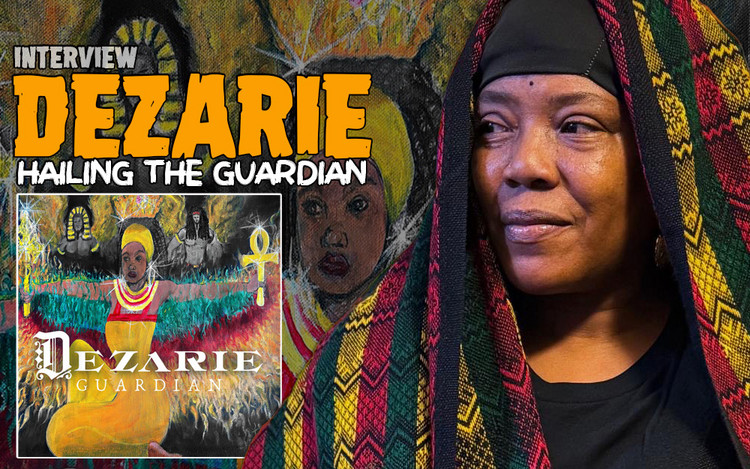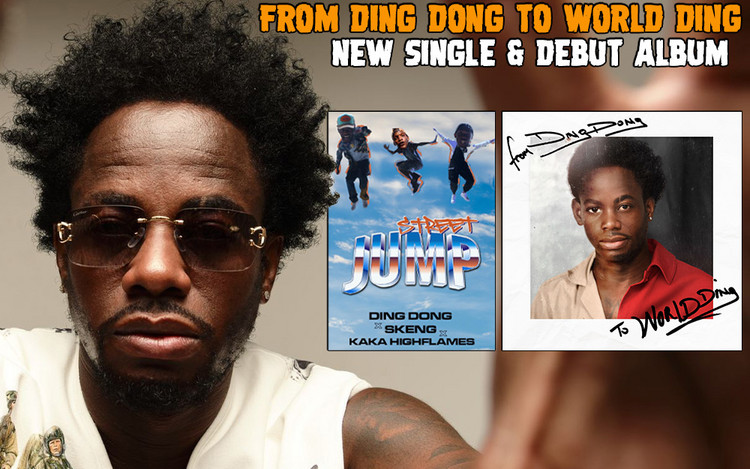Copeland Forbes ADD
Peter Tosh - First & Last Live Performance In Southern Africa 1983
10/19/2023 by Copeland Forbes
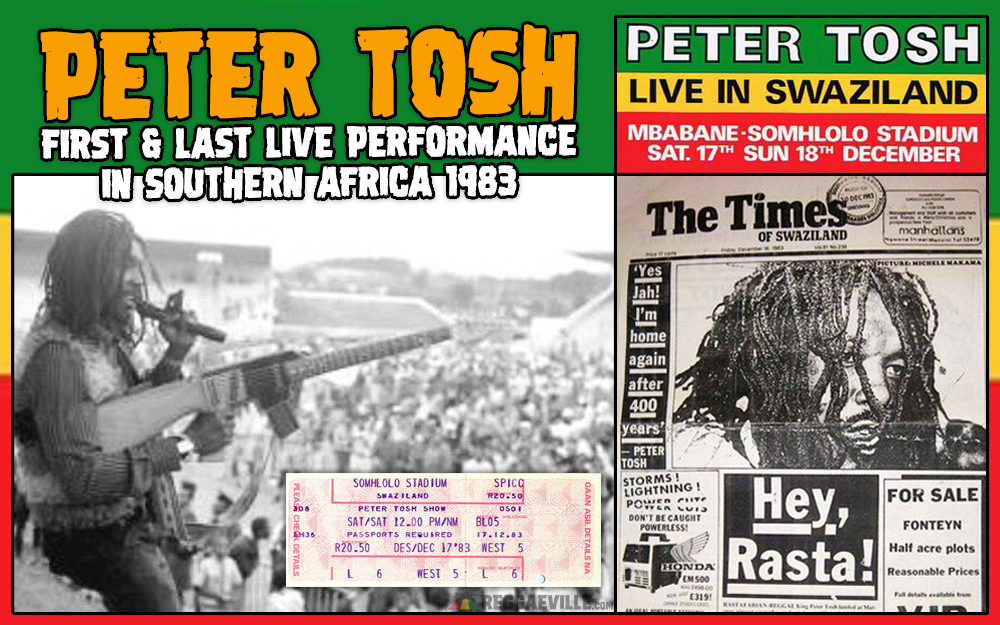
To celebrate Peter Tosh's birthday today (October 19, 1944), we have a special feature celebrating a historic moment in Tosh's career. 40 years ago, in December 1983, Peter Tosh played two concerts in Swaziland (Southern Africa). Copeland Forbes reports on this trip in all its details about its highlights, troubles and dramas:
1983 was one of, if not the biggest year in the musical journey of Peter Tosh. The album Mama Africa was released and the lead off single, Johnny B Goode was on the top of most radio station’s playlist across the world. Our first stop on the 1983 tour was in Australia where we spent almost a month touring, playing live concerts, and even did video for the single Johnny B Goode.
The tour was booked by some folks from South Africa, who lived down-under and some attending school in Australia. They had a company name named Africa Vibrations, through which they did all entertainment activities.
They spoke with me about the possibilities of Peter Tosh doing some live concerts in Swaziland, which is a country bordering South Africa in the South. This would be Peter Tosh’s first concert performance in the Motherland. After months of negotiations and discussions, we finally came to an agreement for Peter Tosh to do two performances in Swaziland on December 17th and 18th at the Somhlolo Stadium in Mbabane.
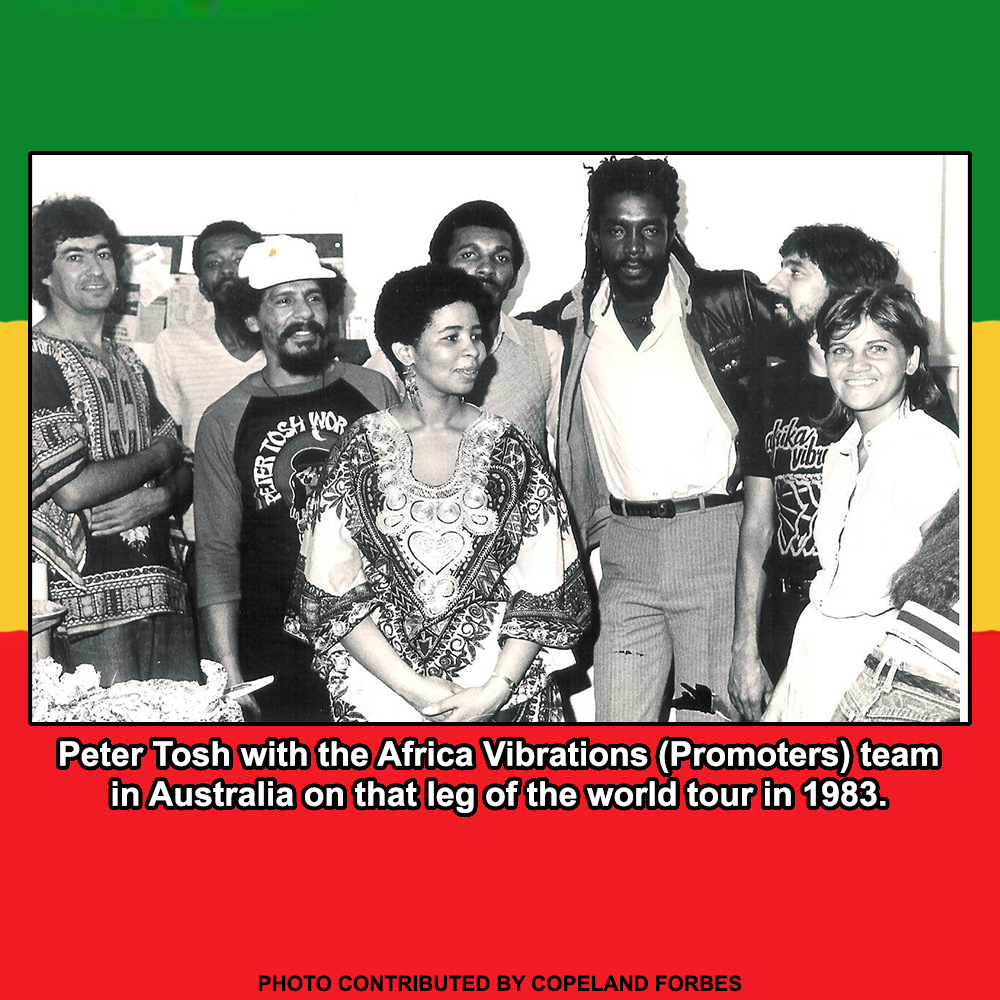
December 14th 1983 our entourage of 16 people flew from Kingston to London and then to Germany. We went from Germany to Zimbabwe. The promoter had chartered four planes to take us from Zimbabwe to Swaziland. Peter had made it very clear that he did not want to go through South Africa. We would have had to go through South Africa to reach Swaziland, had we taken a commercial flight. It was not, at that time, deemed appropriate for recording artistes to be seen in South Africa as this was still the period of apartheid. Nelson Mandela was still in prison. Peter had refused many offers (paying huge sums) to perform in South Africa. He was afraid to even have a connecting flight through the racist nation as he knew that someone could take his picture at the airport and use it for propaganda purposes.
Earlier that year, Peter had done an interview with a journalist in New York who had asked him if he would perform in South Africa. He said, “Yes, but the only way I would play is if I am performing for my people. Why should I keep my music away from my people?” The journalist distorted Peter’s answer and published an article with the headline “Peter Tosh Said He Would Play in South Africa”. It caused quite a bit of controversy. The misrepresentation angered Peter. Things went relatively smoothly until we reached Germany. We were trying to get a connecting flight to Zimbabwe when a lady who was pushing a cart along the concourse accidentally hit Marlene from behind. Marlene had to be restrained from attacking the frightened woman. The musicians quickly left the scene. Fortunately, many in the airport were not familiar with the choice Jamaican fabrics (expletives) Marlene was unfurling in the airport or she would perhaps have been arrested.
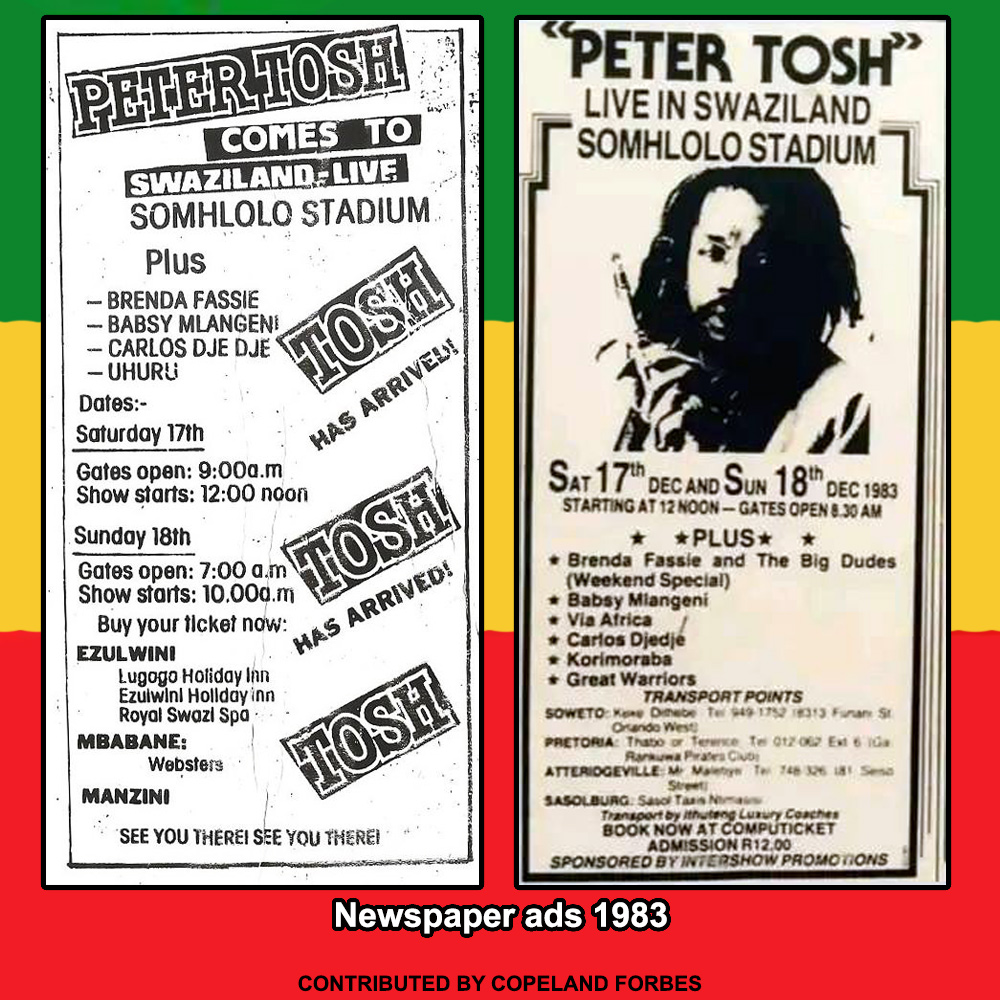
There was a question on the Zimbabwean immigration form which asked how much money the traveler was bringing into the country. Marlene, apparently, had not answered that question. The immigration officer asked her why she had not answered the question. She told him that she did not need to travel with money as she was with her man. The immigration officer told her not to speak to him in that manner. She became irate. She berated the immigration officer who was ready to deport her. Peter intervened and the officer was taking steps to refuse both of them entry. A customs officer, to whom I had just given a copy of Peter’s Equal Rights album, pleaded with the immigration officer telling him that we were in transit to Swaziland and would not be staying in Zimbabwe. The immigration officer relented but not before issuing a very stern warning to us.
It was a three-and-a-half-hour flight from Zimbabwe to Swaziland. We arrived safely in Mbabane, Swaziland (now Eswatini) and went quickly to the Holiday Inn where we had been booked. The hotel had an annex where Peter, Marlene and I were scheduled to stay. Carl T (Peter’s cousin who took care of the artiste’s food) also stayed in the annex with us. Tosh was slated to perform on Saturday 17 and Sunday 18 December at the Somhlolo National Stadium. People were walking through borders coming from South Africa and adjoining territories to attend the shows. Some patrons who had tickets for the Saturday show did not arrive on time due to delays in getting processed at the border. The security in Swaziland closed the borders due to the flood of people who were coming into the country from neighboring territories. The promoters allowed those who had tickets for the show on Saturday (but were late) to use them on Sunday. The first night went very well.
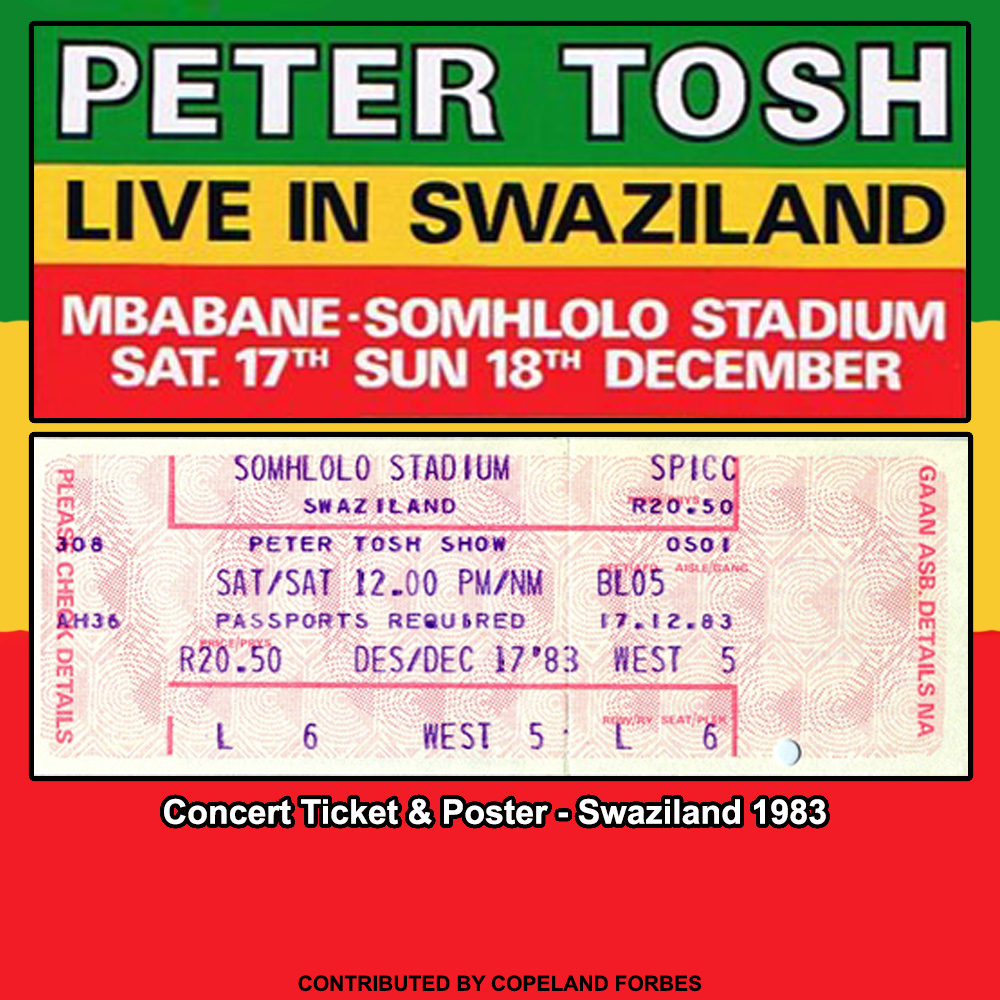
The Africans were thoroughly enjoying the opportunity of seeing one of their favorite acts perform on their own soil. Suddenly the music stopped. Marlene was onstage talking to Peter. Tosh walked up to the microphone and told the audience that he would not be continuing the show unless the promoters opened the gates and allowed everyone on the outside to enter without charge. There were about 5,000 people outside wanting to see the show but could not afford the entrance fee. I was stunned. How could Peter have made such a declaration? He had been contracted to perform at a paid event. His fees had already been sent to an escrow account. He had no right to determine what the promoters should charge. Peter was concerned that people had travelled many miles to see him, he felt that it was not right for them to be turned away because they could not afford the entry fee. Yet, Peter gave no indication that he would be willing to waive his fees.
Clearly, Peter wanted to engage in an act of charity but not at his own expense. When the fans outside the stadium heard Peter’s pronouncement, they broke down the walls and gates to gain entry. Thousands poured into the stadium without paying. Many ran with their fists raised straight towards the VIP area in front of the stage. The security could not restrain them. Peter was pumped when he saw the crowd flooding into the stadium. He took up his M16 guitar and put the strap around his shoulder. The crowd went wild. He began performing the song Apartheid. The stadium erupted. Everyone was in a frenzy as Peter sang, “We gonna fight, fight, fight, fight against apartheid”. The entire stadium was singing and dancing.
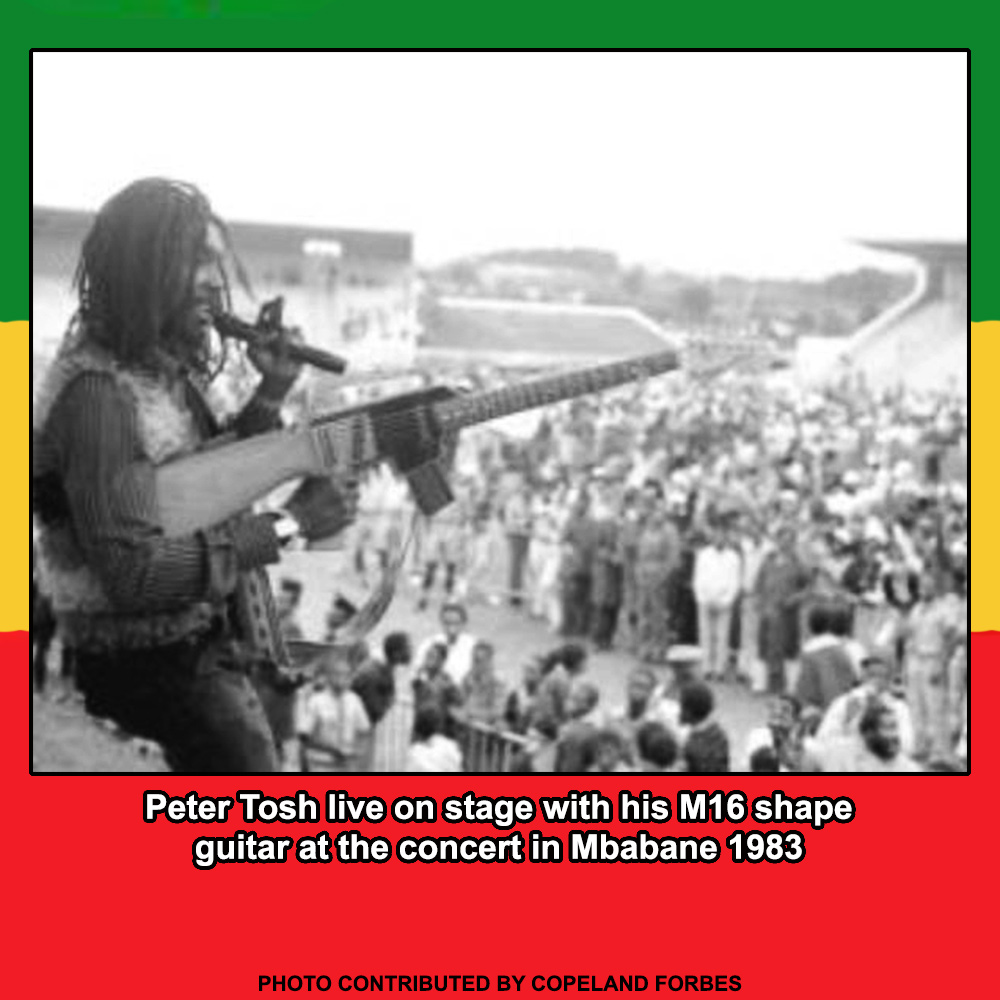
The promoter came to me and said that he was going to sue for breach of contract. He was on solid legal grounds. “How could Peter have done such a thing?” he asked. The promoter said he was going to freeze our fees in the escrow account. He went away and then he came back and said, “Mr. Forbes, I thought about it. I know it’s not your fault, but you must tell your artiste that he cannot do these things”. The next day the musicians were very reserved. They were treading gingerly. They did not want to do anything which might spark an explosive reaction from Marlene. The show went well. Peter had given another superb performance. The audience and the promoter were pleased. During this time, I had managed to secure a merchandising deal for Peter covering southern Africa. I encouraged him to sign the agreement as there was an enormous amount of bootlegged merchandise (with his image) being peddled in the region. I informed him that going into a deal with someone from the region would help to stem the illegal trade in his image. Peter signed the contract and received US$10,000 in travelers’ cheques as advance on the spot. He handed them to Marlene. We successfully completed our assignment in Swaziland.
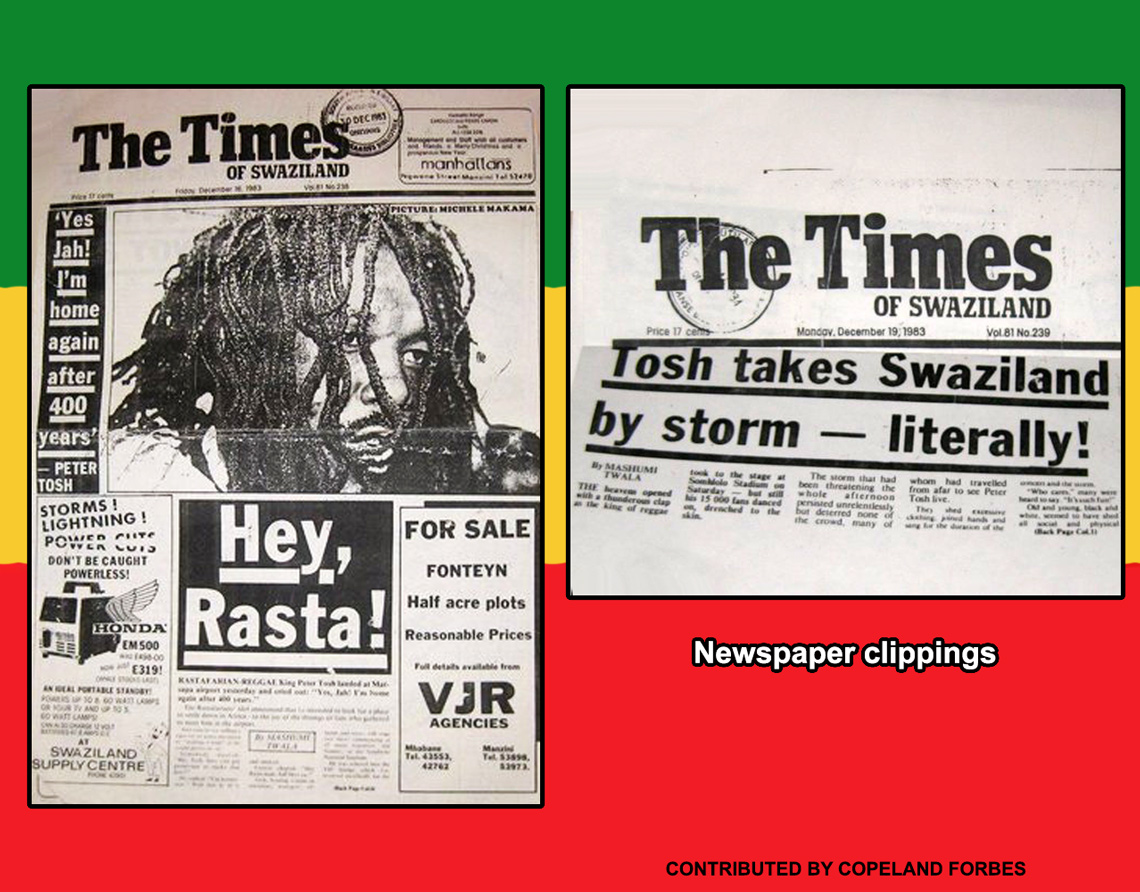
It was time for us to return home. While we were still in Swaziland the promoter explained that he was having problems getting everyone on the same flight from London back to Kingston. He said our entourage might have to wait until after Christmas to get everyone on the same flight from Heathrow to Norman Manley. Peter did not mind staying a few more days but some of the musicians did not like the idea. They wanted to be home for Christmas. Our keyboard player, Keith Sterling, said he did not want to go back to Zimbabwe on a small plane. He was terrified on the flight from Harare to Mbabane and said he would not be able to make a return trip on a small craft. He noted that he would prefer to wait for a large plane which would take him to South Africa. We would have had to leave him in Swaziland as the plane to South Africa would depart later in the afternoon. Despite the fact that we were flying out early, Keith came to the airport with us. While we were at the airport the promoter complained to me about Marlene.
He said she was refusing to allow his pregnant girlfriend to travel on the same plane with us back to Zimbabwe. Marlene, he claimed, was degrading his girlfriend, who was Black, for being pregnant with the child of the promoter who was White. The promoter told Marlene that he was the one who had hired the planes. Marlene was unmoved. My brother Patrick, who was the road manager, intervened and said he would switch planes with the promoter’s girlfriend. Patrick would travel on the plane carrying Marlene, Peter, and me and give the promoter’s girlfriend his place on the other aircraft. Peter sat quietly through the turbulence on the ground. Telling Marlene, she was wrong would just not fly. Keith Sterling looked around and realized he was the only person left at the airport. He felt afraid. Our flight was poised for take-off when our pilot brought the plane to a sudden stop. Sterling was standing in the middle of the runway waving at our plane. He had second thoughts about waiting on the large aircraft to South Africa. Sterling was afraid that a lion or some other animal might devour him while he was waiting alone at this eerie airport.
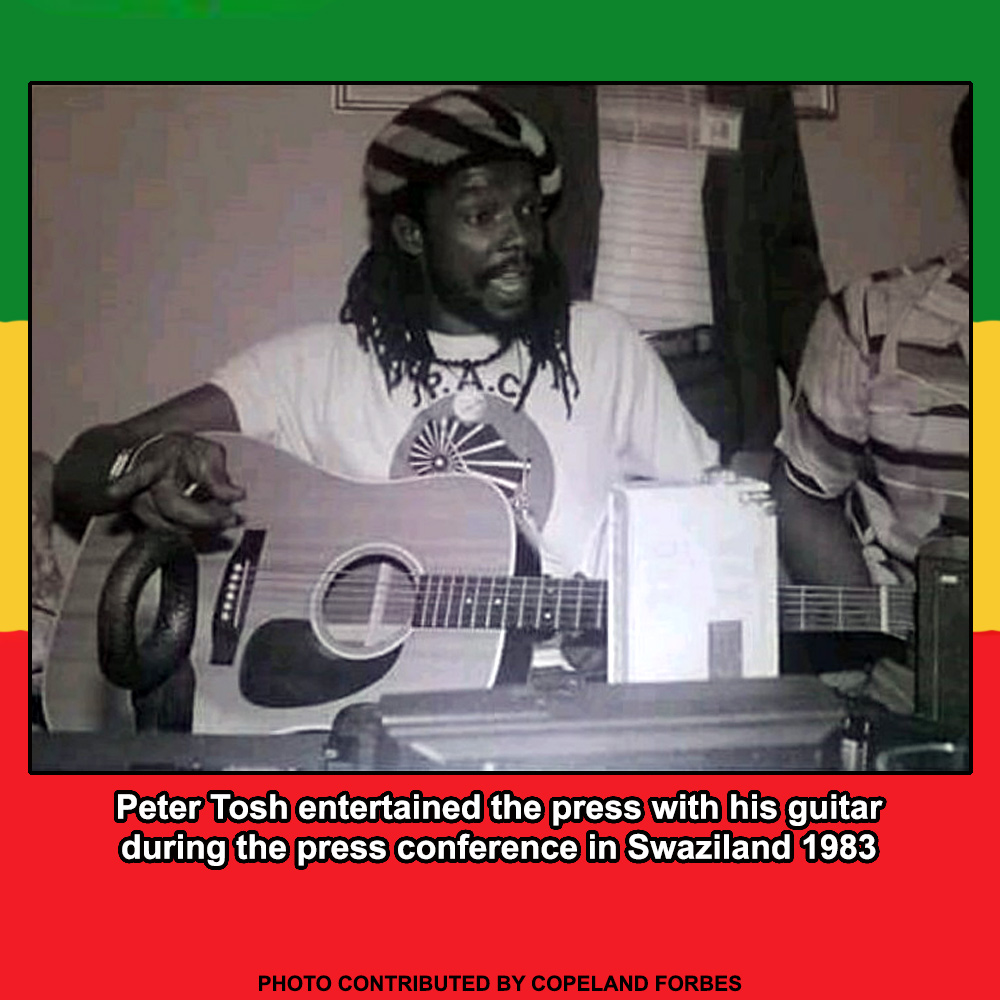
We landed safely in Zimbabwe with a frazzled Sterling. We headed to the Ambassador Hotel where we would spend the night before heading to London. I was awoken by a pounding on my door. It was Santa Davis. He told me that I needed to go up to Peter’s room as there was a big problem. I hurriedly complied. The door was open when I reached Peter’s room, Marlene and the hotel manager were screaming at each other. She was pointing in the manager’s face and telling him to leave her room. I went up to them and said, “Excuse me! Excuse me! what is happening here?” The manager said, “This woman is very disrespectful”. The manager explained that the guests had been complaining about the smell of fish. Marlene was cooking fish in her room and the odor had permeated the entire floor. The manager said that he had gone to tell her that no cooking was allowed in the room. He had informed her that there was a kitchen downstairs where she could do her cooking.
She had refused his offer. It seemed she just wanted to create a stink. The manager turned to me and said, “Mr. Forbes I lost seven members of my family fighting for the liberation of this country. I am not going to let a woman from the Western World disrespect me in my own country. I want her out. Now!” The hotel manager left and headed downstairs. I followed him. He was mad. He said he wanted Peter and his entire entourage out of the hotel immediately. He claimed that there was also a strong scent of marijuana on the floor. I pleaded with him to allow us to stay as we were leaving in the morning. Our keyboardist, Sterling, ran upstairs and brought back the stove and the utensils that Marlene had been using. Sterling wanted to show that the cooking had stopped. The manager was not impressed. He was insistent that we should leave. I managed to get a representative of the promoter to enter a plea for us. It worked. The manager relented. I later gave him a copy of Mama Africa.
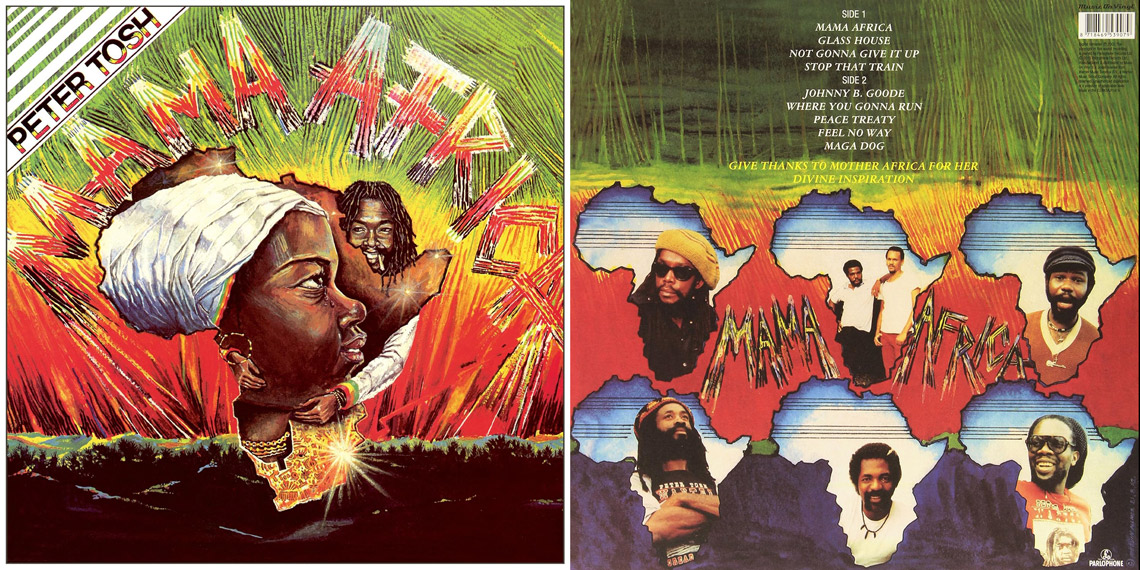
We had to rush to the airport the following morning. Our ride was late. We managed to grab whatever seats were available on the British Airways flight from Harare to London. After the meal was served, there was a line of passengers waiting to use the restroom. Marlene jumped up from her seat and started pushing ahead of those in the line. A man who had been standing at the head of the line touched Marlene on the shoulders indicating to her that there was a queue. She spun around and delivered a left hook to his stomach. “What you want me to do stand up in line and piss up myself?” she vociferously queried.
Everyone who had been ahead of her in line just stood back without a murmur. We landed in London and boarded the flight to Kingston. It was a double-decker plane. Peter and Patrick were sitting upstairs together. Marlene, myself, and the rest of the entourage were down stairs. When the plane reached cruising altitude, Marlene started walking around looking for Peter. She went upstairs. She started arguing with the flight attendants who told her that she would not be allowed upstairs if she did not have a seat there. She pushed past them and went to the area where Peter and Patrick were sitting. She shouted, “Hey Copeland brother, what you doing up here with mi man? I am the one supposed to be up here”. Patrick picked up his bag and switched seats with her.
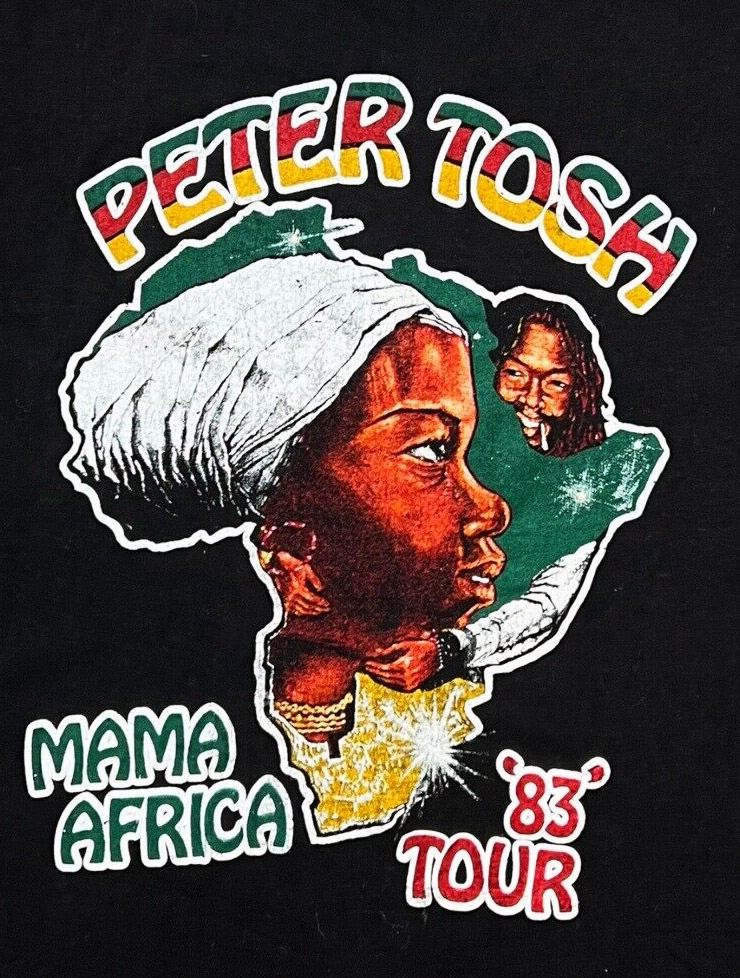
We arrived safely in Jamaica about seven days before the Super Jam show was scheduled to take place. The promoter Kingsley Cooper was pleased to know we were back on the island in time for his show. However, Kingsley called me the following day, confused. Marlene had reached out to him saying that she wanted all the money (up front) for the show. This, he thought, was unusual. As far as Kingsley was aware, he was dealing with me on the matter. The standard procedure was for the promoter to pay the artiste 50 per cent of the fees on signing, and the balance on the completion of the assignment. I told Kingsley that I was not able to explain what was happening. He asked what he should do. I told him to make out a cheque to Peter for the full amount and give it to Marlene. Kingsley followed my suggestion. We had brought back a large number of T shirts from Swaziland. I told Peter that I was going to give one shirt to each band member. He agreed.
Donald Kinsey requested an extra one for his wife. She loved Africa. Kinsey took up an extra shirt. Marlene began to berate him. On the day of the show, Donald went up to Peter’s house to talk to him. Peter was not responding. Marlene began cursing Kinsey again. Donald left for his hotel and told me he was not playing on the show that night. I did not take him seriously. Donald Kinsey had been with Peter since Tosh had formed his first band – Word Sound and Power – after leaving the Wailers. It was showtime, but we did not see Donald Kinsey at the venue. I remembered that he had told me he would not be performing on the show. I drove down to his hotel and pleaded with him to do the show. Don relented. Peter gave a stellar performance. Many said it was the best Tosh performance they had ever seen.
TAKEN FROM REGGAE MY LIFE IS by COPELAND FORBES
This is an excerpt from the red-hot book Reggae My Life Is authored by Copeland Forbes and co-written by Clyde P McKenzie available now on Amazon.com and Barnes and Noble, and at DownSound Entertainment at 22 Belmont Road, Kingston 10, Jamaica.
